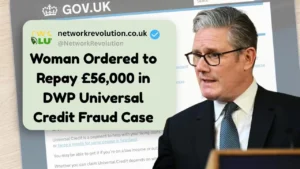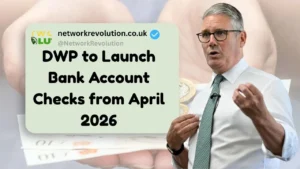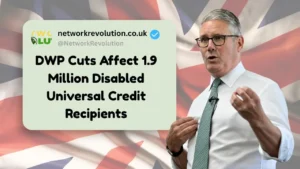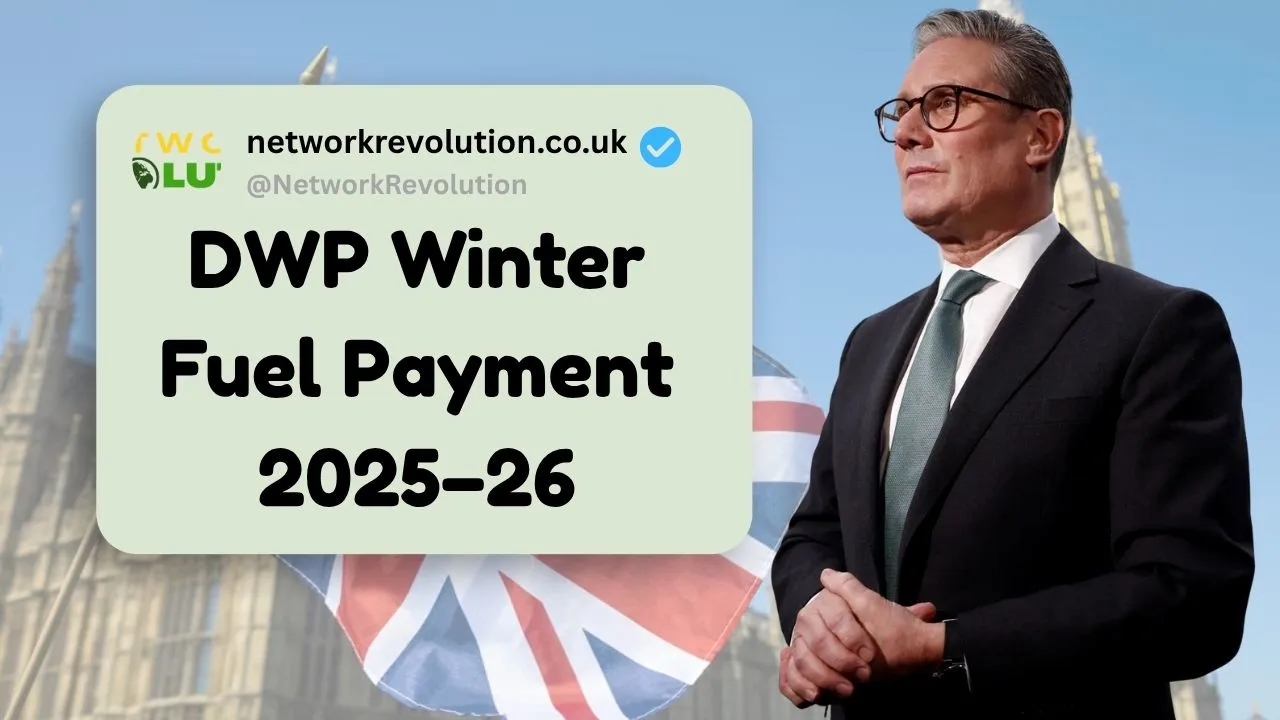After being temporarily scrapped last year, the Winter Fuel Payment is officially returning for the 2025–26 season, offering crucial heating support to millions of pensioners. The Department for Work and Pensions (DWP) has set clear rules regarding age, income, and payment amounts — ensuring clarity ahead of the cold season.

The payment, worth between £200 and £300, will once again serve as a lifeline for older residents struggling with rising energy and living costs. While nearly nine million pensioners will benefit automatically, a new income recovery rule means those earning above £35,000 annually will need to repay the amount later via the tax system.
According to Chancellor Rachel Reeves, reinstating the payment is “a responsible, targeted measure to support older citizens through the winter while maintaining fiscal discipline.”

Introduction to the Program
The Winter Fuel Payment is a long-standing annual benefit designed to help pensioners cover the rising costs of home heating during the winter months. Payments are made directly into bank accounts, requiring no application process.
This year’s scheme, reinstated after a one-year pause, introduces income-linked recovery for high earners — a first in the payment’s history. The DWP says the decision reflects a balance between universal protection for older citizens and fairness for taxpayers.

Economist Dr. Helen Ford, of the Institute for Fiscal Responsibility, remarked:
“The reintroduction of the Winter Fuel Payment restores confidence for pensioners while addressing equity concerns. The income recovery mechanism is a middle ground between universal support and fiscal prudence.”
Also Read DWP to Launch Bank Account Checks from April 2026
DWP to Launch Bank Account Checks from April 2026
Key Features and Overview
| Feature | Details (2025–26 Update) |
|---|---|
| Administered By | Department for Work and Pensions (DWP) |
| Payment Amount | £200–£300 (depending on household circumstances) |
| Eligibility Age | Born before 22 September 1959 |
| Automatic Payment | Yes – no need to apply |
| Income Threshold | £35,000 annual earnings cap (HMRC recovery applies) |
| Payment Period | November–January 2025–26 |
| Payment Method | Direct deposit into pensioners’ bank accounts |
| Taxable | Non-taxable on issue; reclaimed for high earners |
| Reintroduction Announced By | Chancellor Rachel Reeves |
| Policy Objective | Protect pensioners from energy inflation while managing fiscal risk |
Eligibility Rules
1. Age Requirement
To qualify for the Winter Fuel Payment 2025–26, pensioners must:

- Have been born before 22 September 1959, and
- Be aged 66 or over at the start of the winter season (September 2025).
| Date of Birth | Eligibility Status |
|---|---|
| Before 22 September 1959 | Eligible for Winter Fuel Payment |
| On or after 22 September 1959 | Not eligible |
2. Residency
You must be ordinarily resident in the UK during the “qualifying week” (usually the third week of September).
3. Automatic Enrollment
All eligible pensioners receiving State Pension or Pension Credit will automatically receive the payment — no forms, no claims.
According to DWP spokesperson Alan Kent,
“This year’s payment is fully automated, ensuring eligible pensioners receive their winter energy support without additional paperwork or application delays.”
Benefit Amounts and Household Scenarios
The amount you receive depends on your household setup and whether you live alone, with another eligible person, or with someone who is not eligible.
| Circumstances | Amount Paid |
|---|---|
| Living alone (only eligible person in household) | £300 |
| Living with another eligible partner | £200 each |
| Living with an ineligible partner | £200 |
| Living in a care home (eligible) | £150–£200, depending on benefits |
| Receiving Pension Credit (guarantee element) | Full entitlement, £300 |
Payments are typically made between November and January, arriving directly in bank accounts used for the State Pension.
Income Threshold and HMRC Recovery
A major new feature in the 2025–26 Winter Fuel Payment is the introduction of an income-based recovery system:
- Pensioners earning above £35,000 annually will still receive the payment automatically.
- However, HMRC will reclaim the full amount via the self-assessment or PAYE system later in the tax year.
- The threshold will remain frozen at £35,000, meaning more pensioners will gradually be affected as wages and pensions rise.
- Recovery details will be finalised by June 2025, ahead of payment distribution.
| Income Band | Treatment |
|---|---|
| Below £35,000 | Payment retained fully |
| Above £35,000 | Payment reclaimed via HMRC |
| Threshold Adjustment | Frozen – no inflation link |
| Expected Impact | Up to 500,000 pensioners affected by 2027 |
Policy experts warn that “fiscal drag” — when frozen thresholds capture more earners due to inflation — could gradually reduce the universality of the benefit.
Comparison: Old vs New Scheme
| Aspect | 2023–24 (Withdrawn Year) | 2025–26 (Restored Year) |
|---|---|---|
| Availability | Suspended | Reinstated |
| Income Cap | None | £35,000 recovery rule |
| Automatic Payments | Yes | Yes |
| Amount Range | £200–£300 | £200–£300 |
| Policy Stance | Fiscal restraint | Targeted restoration |
| Estimated Recipients | 0 | 9 million pensioners |
Government and Expert Reactions
Prime Minister Keir Starmer defended the reinstatement, saying the policy “reflects stabilising economic conditions and a responsible approach to social protection.”
Meanwhile, Chancellor Rachel Reeves acknowledged the pressures still facing households:
“We know not everyone feels the recovery yet. Reintroducing the Winter Fuel Payment ensures older citizens get the support they need during the coldest months.”
Charities and advocacy groups, however, have offered cautious praise. Age UK warned that reclaiming payments from higher earners may cause confusion if HMRC processes are not clearly communicated.
Energy market analyst Dr. Robert Telford added:
“Even with wholesale energy prices easing slightly, winter costs remain 60% above pre-pandemic averages. This payment will help pensioners keep the heating on without compromising essentials.”
Payment Schedule and Process
- Payment Period: November 2025 to January 2026
- Distribution: Automatic deposit into bank accounts used for State Pension
- Reference: “DWP Winter Fuel Payment” on bank statements
- Reclaim Notices: HMRC will issue repayment instructions (for high earners) in 2026 tax assessments
| Stage | Timeline | Details |
|---|---|---|
| DWP Eligibility Checks | September 2025 | Based on pension records and date of birth |
| Payments Begin | November 2025 | Direct bank transfers |
| HMRC Reclaim Notices | Early 2026 | Sent to pensioners over income threshold |
| Completion | January 2026 | All payments processed |
Why This Matters for Pensioners?
The Winter Fuel Payment remains one of the UK’s most vital seasonal supports. Amid high inflation and energy volatility, reinstating this benefit offers both financial relief and psychological reassurance for pensioners living on fixed incomes.
However, the £35,000 income rule introduces a new level of complexity. While it helps focus resources on those most in need, critics argue that it blurs the scheme’s traditionally universal nature.
Senior policy analyst Claire Hodges concludes:
“Reinstating the payment was the right call — it’s about dignity and security for pensioners. But the income clawback creates new questions about fairness and administrative efficiency.”
FAQs
1. Who qualifies for the Winter Fuel Payment 2025–26?
Anyone born before 22 September 1959 and living in the UK during the qualifying week will automatically qualify.
2. How much will I receive?
You will get £200 or £300, depending on your household setup.
3. When will payments be made?
Between November 2025 and January 2026.
4. Do I need to apply?
No. Payments are automatic for eligible pensioners.
5. Will high earners lose the payment?
Pensioners earning above £35,000 per year will initially receive the payment but must repay it via HMRC later.
6. Will the income threshold rise with inflation?
No. The threshold is frozen, which means more pensioners could be affected in the coming years.

